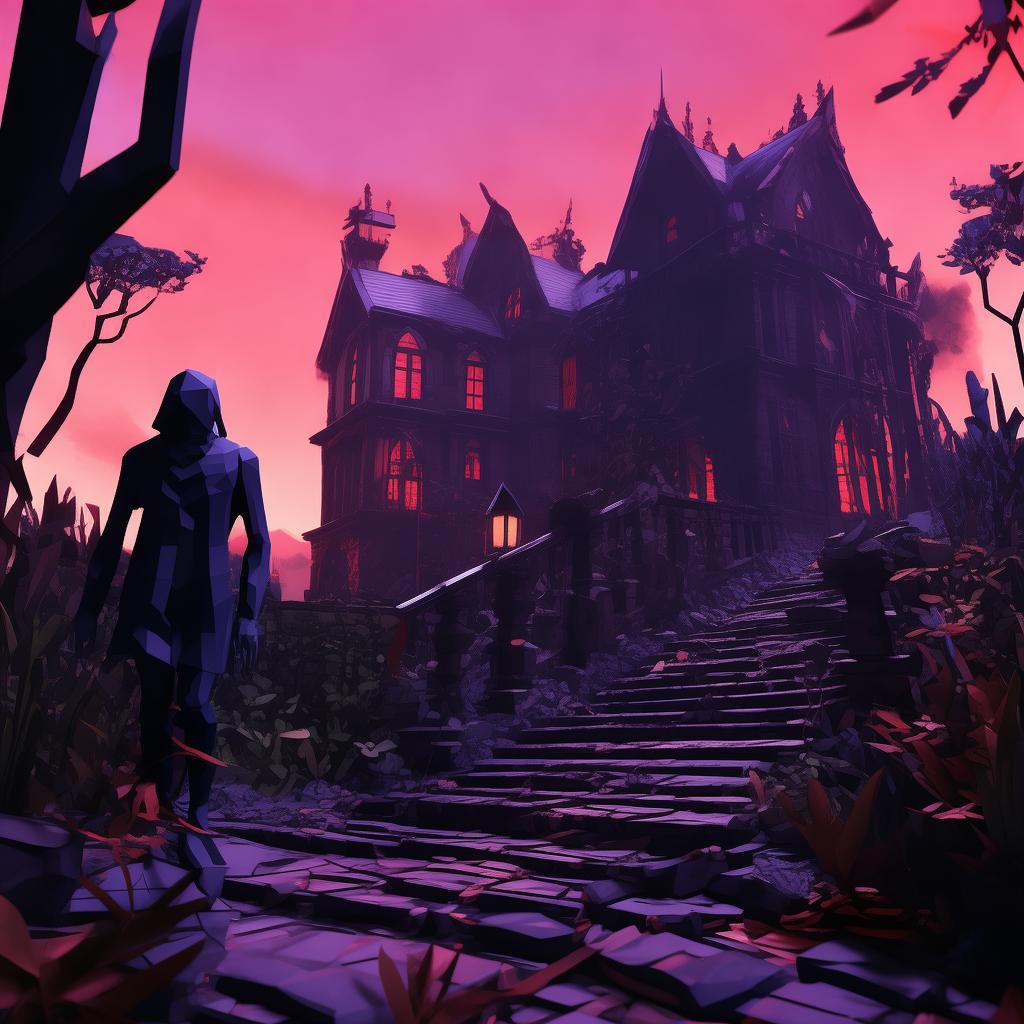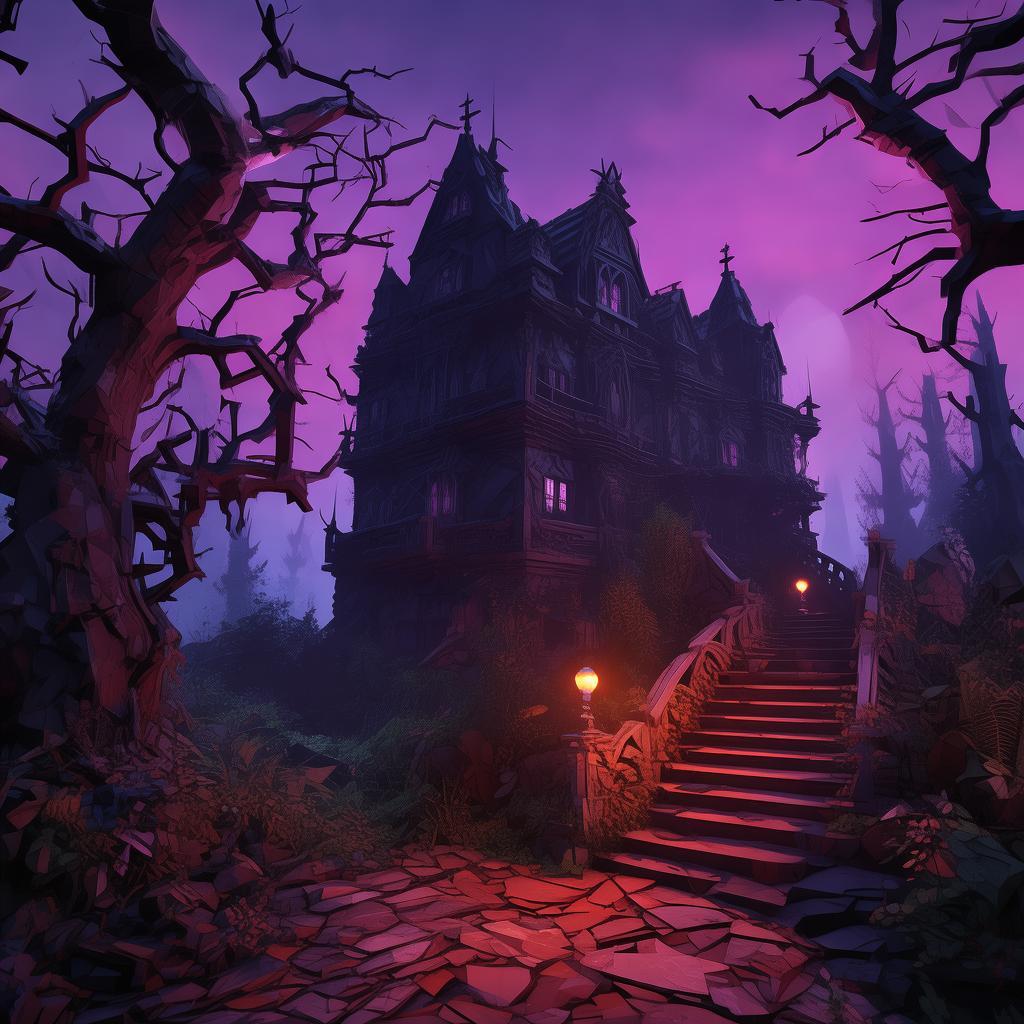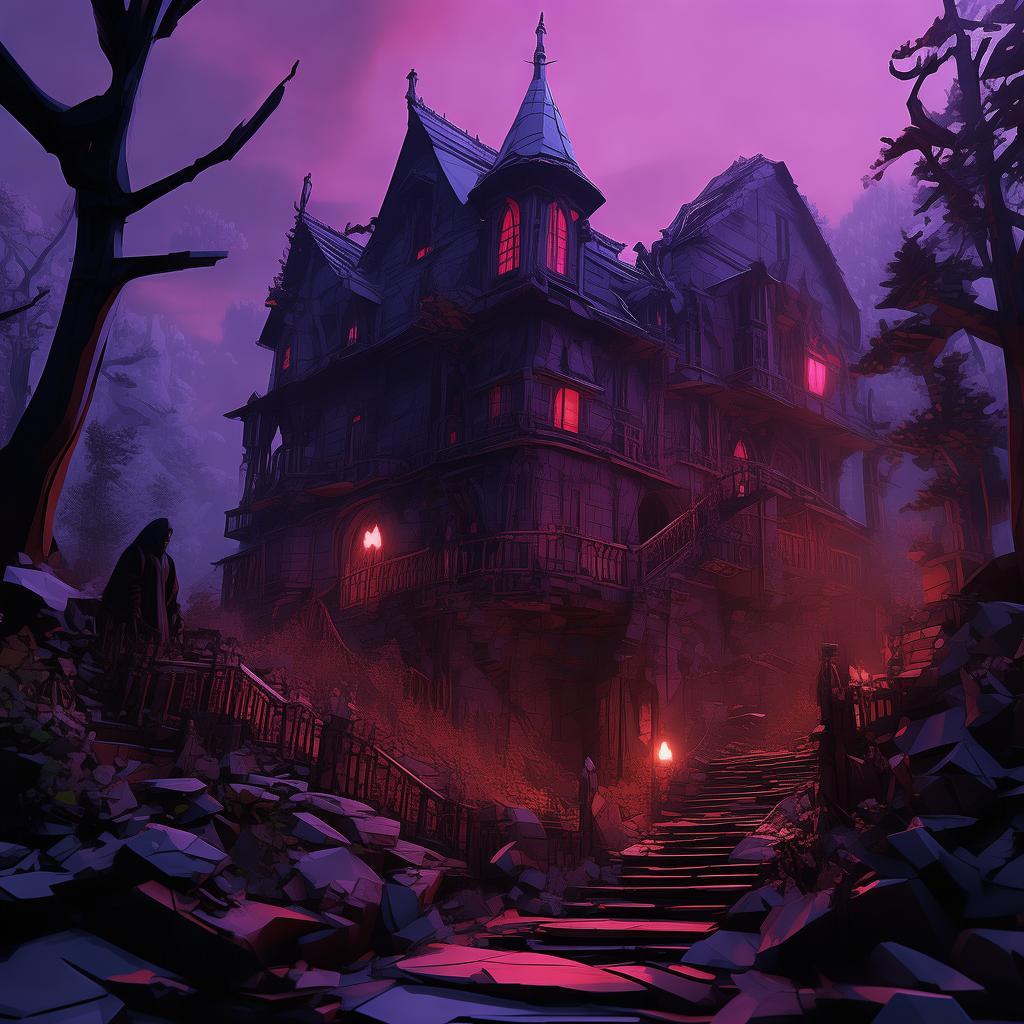The Taoist's Cursed Curio
In the heart of an ancient Chinese city, shrouded in mist and legend, stood the Ghostly Gallery, a repository of forgotten relics and eerie artifacts. The gallery was a place of whispers and shadows, where the line between the living and the dead was as thin as a sheet of rice paper. It was said that those who entered the gallery with a purpose would find it, but at a price that none could foresee.
Among the myriad of oddities displayed in the gallery, there was one object that drew the attention of a young Taoist named Hong. His name was etched into the curio—a small, ornate box adorned with intricate carvings of the yin-yang symbol and the eyes of a phoenix. It was said to be the "Cursed Curio," a relic of immense power and malevolence. Hong had heard tales of the Curio's ability to grant its possessor great knowledge and control over the spirits, but at a terrible cost. He had come to the gallery with a singular goal: to claim the Curio and unlock the secrets of the Tao that eluded him.
Hong's journey through the gallery was fraught with eerie encounters. The air was thick with the scent of incense, and the walls seemed to breathe with the weight of centuries of sorrow. He encountered spectral figures, their faces twisted in perpetual anguish, and felt the chill of unseen presences brush against his skin. Yet, driven by his desire for enlightenment, Hong pressed on.
As he approached the Curio, he noticed a peculiar sign: "He who seeks the Curio must first face the test of his own heart." Hong, undeterred, opened the box and found a small, ornate key. The key was inscribed with a riddle that seemed to echo the very essence of his being:
"I am not of wood, stone, or flesh,
Nor do I ever age or rot.
To find me, you must look within,
For I am but a reflection of your soul."

Hong pondered the riddle, and suddenly, the gallery around him seemed to shift. The walls seemed to close in, and the air grew thick with an overwhelming sense of dread. He felt a presence behind him, cold and unyielding. He turned to see the figure of an old Taoist, his eyes hollow and his robes trailing like the remnants of a ghostly fog.
"Seek the Curio at your own peril," the old Taoist's voice was like a whisper in the wind. "For it will reveal to you the truth of your life, and the price may be too great to bear."
Ignoring the warning, Hong inserted the key into the lock of the Curio. The box clicked open, and a blinding light enveloped him. When the light faded, he found himself in a room that seemed to be a reflection of his own mind. The walls were lined with mirrors, each one reflecting his own face, but twisted and distorted in ways that were impossible to comprehend.
Hong began to lose himself in the mirrors, his reflection blending with the myriad of others until he could no longer distinguish between the real and the illusion. He heard voices, his own and others', a cacophony of guilt, regret, and fear. He saw the events of his life replayed before him, each one a piece of the puzzle that was his soul.
In the midst of this disorienting vision, Hong realized that the Curio was not just an object; it was a portal to his own subconscious. The key was his own heart, and the riddle was the path to self-discovery. As he delved deeper into the depths of his own mind, he discovered the truth about his past—a truth that was both shocking and liberating.
Hong had been born into a family of Taoist scholars, destined to follow in the footsteps of his ancestors. However, his path had diverged when he met a woman who challenged his beliefs and introduced him to the world beyond the Tao. Their love was forbidden, and in a fit of rage, he had cursed her soul to an eternity of wandering.
The Curio had been created to atone for his sin, but instead, it had become a trap. Hong had sought the Curio to absolve himself of his past, but in doing so, he had only uncovered the extent of his own darkness. The voices he had heard were the echoes of his own guilt, and the faces in the mirrors were the specters of his own making.
With a heavy heart, Hong understood that the price of redemption was too great to bear. He reached out to the Curio, and the box closed around his hand. The light returned, and Hong found himself back in the gallery, the old Taoist standing before him.
"You have seen the truth of your soul," the old Taoist said. "Now, you must choose your path."
Hong nodded, his eyes filled with a newfound clarity. He turned away from the Curio and walked out of the gallery, leaving the cursed artifact behind. He knew that he could never possess the Curio, for it was a reflection of his own heart, and his heart was already heavy with the burden of his past.
Hong returned to his life, a changed man. He dedicated himself to the Tao, but with a newfound understanding of the balance between light and shadow. He learned to embrace the darkness within himself, not as a curse, but as a teacher. And as he walked through the world, he carried the weight of his past, but with a lightness of spirit that came from knowing the truth of his soul.
In the end, the Taoist's quest for the Curio had led him not to enlightenment, but to self-awareness. And in that awareness, he found the true path of the Tao.
✨ Original Statement ✨
All articles published on this website (including but not limited to text, images, videos, and other content) are original or authorized for reposting and are protected by relevant laws. Without the explicit written permission of this website, no individual or organization may copy, modify, repost, or use the content for commercial purposes.
If you need to quote or cooperate, please contact this site for authorization. We reserve the right to pursue legal responsibility for any unauthorized use.
Hereby declared.









